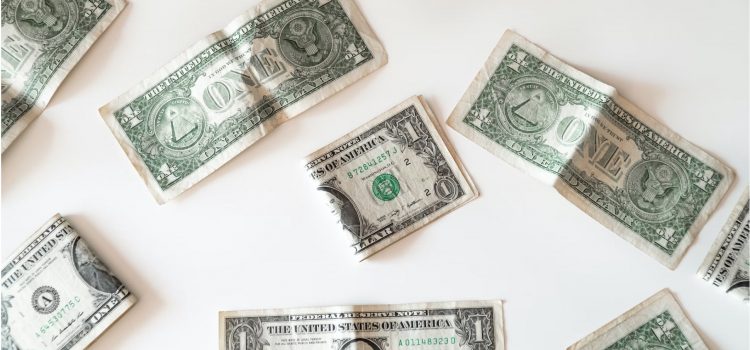
This is a free excerpt from one of Shortform’s Articles. We give you all the important information you need to know about current events and more.
Don't miss out on the whole story. Sign up for a free trial here .
What’s behind the huge number of Dollar General stores? Are dollar stores capitalizing on poverty or adding value to society?
Dollar stores are the fastest-growing food retailers in the US and are working to become the top dog of one-stop-shopping for America’s poorest citizens. In particular, the number of Dollar General stores is exploding as the retailer opens three new stores a day.
Read on to learn what’s behind this massive number of Dollar General stores and why it has some experts concerned.
The Increasing Number of Dollar General Stores
Dollar stores are the fastest-growing food retailers in the nation and are working to become the top dog of one-stop-shopping for America’s poorest citizens. The number of Dollar General stores is particularly notable—the national discount retailer opens three new stores a day in the US and has an algorithm to identify prospective store locations. Seventy-five percent of Americans live within five miles of a Dollar General. Years of rising income inequality haven’t just fueled dollar stores’ proliferation in economically disadvantaged rural areas, they have built and cemented the stores’ customer base.
What’s behind the rise in dollar stores in the US? Should we be concerned about the number of Dollar General stores cropping up? Are they a boon or boondoggle for America’s most economically disadvantaged? We’ll look at experts’ varied viewpoints on these questions.
What’s Behind the Increase?
With the number of Dollar General stores in the US, there’s no doubt that it takes the title of the largest dollar store in the nation. Dollar General isn’t just growing its food sales, it’s the fastest-growing retailer in the nation—opening three new stores a day in parts of the country where other businesses can’t survive. Experts say that dollar stores do well in rural areas because they can snatch up cheap real estate, outcompete small grocers, and establish themselves as the viable only game in town,
Three-quarters of Dollar General stores are in communities with 20,000 people or fewer, and 75% percent of Americans live within five miles of a Dollar General. The company:
- Opened 1,100 retail stores in 2022 and plans 1,050 more for 2023.
- Has 19,000 locations across the country—twice as many as Walmart and Target combined.
- Created its own algorithm to identify prospective store locations based on population density, traffic patterns, and sites attractive to visitors, like campgrounds and churches.
Dollar Store Mission Creep
Dollar stores aren’t just popping up, they’re broadening their scope. Dollar General hopes to transform itself into a one-stop-shopping experience for broader swaths of Americans: The number of Dollar General stores is only going to increase as it plans to open 17,000 more storefronts in the future, including 1,000 DGX stores, for metropolitan dwellers, and 1,000 pOpshelf stores, for higher-end suburban denizens.
Aside from the explosive number of Dollar General stores in the US, the company is also expanding its food, health, and wellness offerings. It:
- Has added more coolers, fresh produce, and 400 new health-related items.
- Has hired its first chief medical officer.
- Touts itself as 20% to 40% less expensive than drug and grocery stores.
Do Dollar Stores Add Value?
Dollar store supporters argue that the retail outlets bring a valuable service to remote and economically disadvantaged communities, sometimes serving as the only local source of food Americans can access.
Some experts say that dollar stores are a vital part of the food system—no more likely to create food deserts in low-income areas than other retailers and working to offer healthy foods, like frozen vegetables and brown rice.
Do Dollar Stores Capitalize on Poverty?
But other experts contend that dollar stores are preying on and harming low-income Americans and workers. They argue that the stores:
- Narrow customers’ healthy food options, favoring pre-packaged, shelf-stable, low-nutrient foods over fresh foods.
- Are a parasitic blight on small and economically disadvantaged communities, setting up shop in vulnerable towns and neighborhoods, pushing out the local competition, and securing their status as the only viable game in town—leaving residents with no other food options.
- Along with the massive number of Dollar General stores comes a laundry list of controversies as the retailer is accused of engaging in unsafe, unhealthy, and unfair workplace practices:
- Dollar General has racked up 111 workplace safety violations since January 2017—winning itself more than $15 million in OSHA penalties and the classification “severe violator,” reflecting willful and repeated safety standard violations.
- Dollar General relies on cheap labor. The company pays some of its steadily growing workforce less than $10 an hour and has been cited for poor workplace conditions like non-functioning bathrooms and inadequate heating and air conditioning.
- The small number of staff at Dollar General stores is a problem—the company uses a skeletal staffing structure. Stores often have just one-to-three floor workers—too few to unload deliveries and also stock shelves, contributing to aisle clutter and other hazardous conditions cited in OSHA safety violations.
- Dollar stores are a hotspot for crime. Some say that dollar store chains have failed to adequately respond to robberies and shootings or ensure safety in their stores.

Want to fast-track your learning? With Shortform, you’ll gain insights you won't find anywhere else .
Here's what you’ll get when you sign up for Shortform :
- Complicated ideas explained in simple and concise ways
- Smart analysis that connects what you’re reading to other key concepts
- Writing with zero fluff because we know how important your time is






